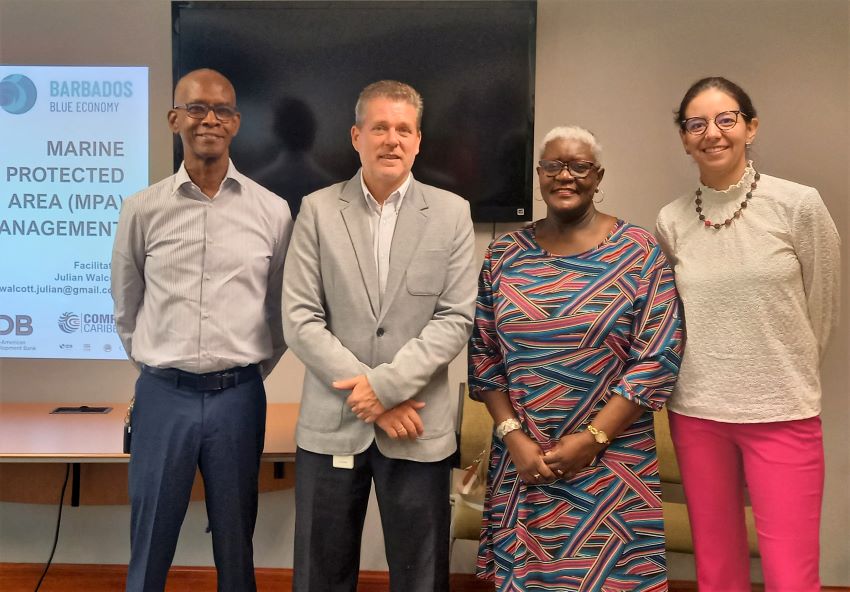
Barbados’ debt conversion with the Inter-American Development Bank (IDB) and The Nature Conservancy (TNC) last September is expected to transform the island’s maritime sector.
Permanent Secretary in the Blue Economy Division of the Ministry of the Environment and National Beautification, Sonia Foster, outlined this as she stated that the debt conversion will make use of an innovative and efficient structure to maximise savings generated for marine conservation purposes.
Ms. Foster was speaking at the launch of three elective courses – Marine Protected Areas, Strategic Environmental Assessment, and Sustainable Ocean Finance – under the Barbados Professional Skills Development Programme, at the Baobab Towers, today.
“The deal [debt conversion] will fund a Domestic Conservation Fund and an Endowment Trust that will support large-scale conservation of the country’s fragile marine environment, as well as the promotion of the sustainable blue economy for generations,” she said.
Ms. Foster added that the proceeds will fund critical marine conservation work and the sustainable management of a significant portion of Barbados’ marine assets.
During her address, she explained that the conservation-funding agreement with TNC required Government to redirect interest savings generated by the transaction to the Barbados Environmental Sustainability Fund (BESF) and the Endowment Trust.
The Permanent Secretary noted that the BESF will build on the capital made available by the operation and use of its resources to fund a series of key marine conservation projects; administer the Endowment Fund, and commit to protecting and sustainably manage up to 30 per cent of Barbados’ Exclusive Economic Zone and territorial sea.
Meanwhile, the Endowment Fund will ensure that investments in marine conservation projects in Barbados can continue on a long-term basis after the 15-year lifecycle of the transaction is completed.
“The overarching goal of the Barbados Environmental Sustainability Fund will be to promote the maintenance, sustainable use, and growth of Barbados’ natural capital by making grants to non-profit organisations, community-based organisations, government agencies, and the private sector for relevant environmental and sustainable development projects,” Ms. Foster said.
Chief of Operations for Barbados and the Eastern Caribbean, Jean-Eric Theinhardt, said the courses will strengthen the capacity of the Ministry and related bodies dealing with the blue economy in Barbados.
Mr. Theinhardt explained that the Barbados Professional Skills Development Programme was designed for public sector officials, and builds on the findings and recommendations of the Blue Economy Institutional Capacity Assessment.
That assessment, he said, identified three overreaching priorities: enhancing intra-agency coordination capacities; implementing the blue economy policy, and supporting the execution of the blue economy roadmap.
“It is aimed at supporting the creation of new skills needed to improve the coordination capacities of the ministry in its role of leading the national blue economy growth,” he stated.
